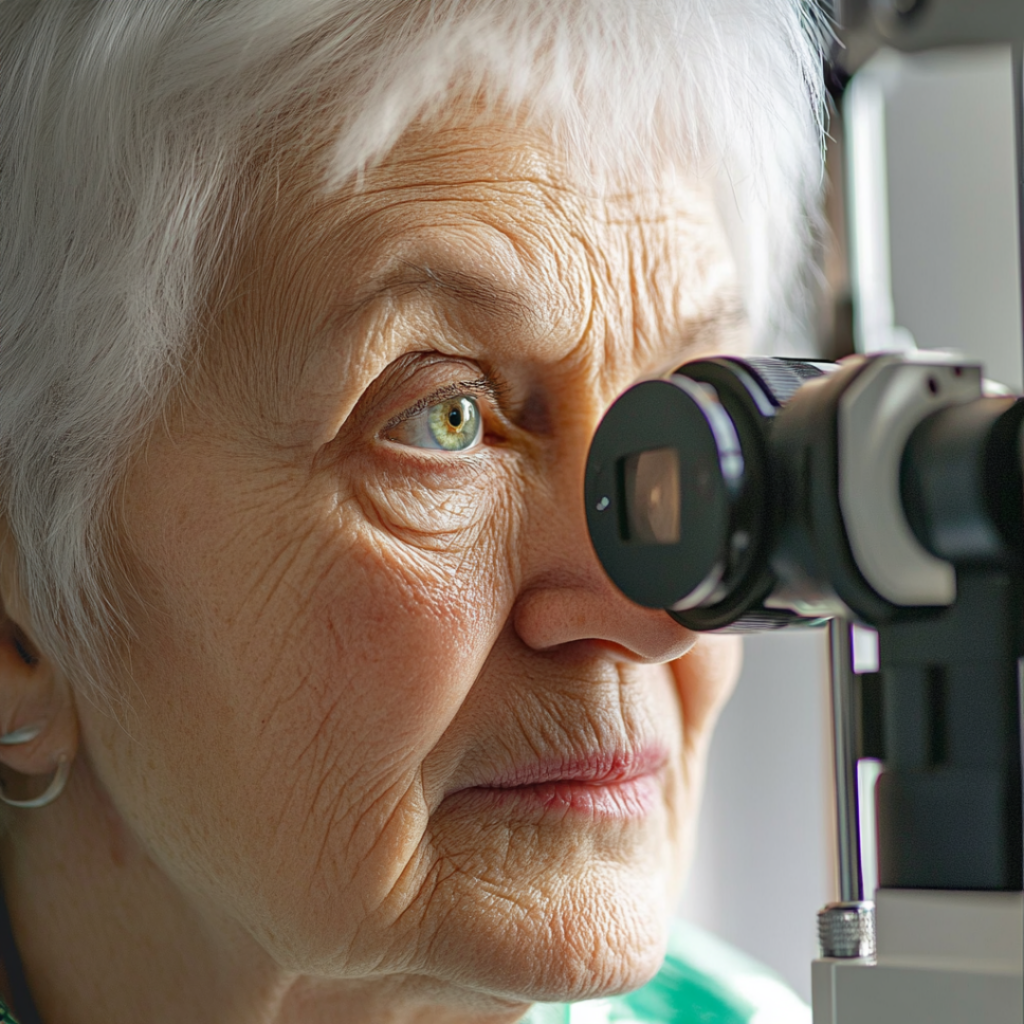Recognising the Signs of Age-Related Macular Degeneration (AMD)
The earlier AMD is detected, the better the chances of managing its progression effectively. Understanding the signs can help you seek timely advice from an eye care professional.

Age-related macular degeneration (AMD) is one of the leading causes of vision loss in people over the age of 50. It affects the macula, a small area in the centre of the retina responsible for sharp, central vision, making activities like reading, recognising faces, and driving more challenging.
What is AMD?
AMD comes in two main forms:
- Dry AMD: The more common type, characterised by gradual thinning of the macula. Vision loss typically occurs slowly over time.
- Wet AMD: Less common but more severe, involving abnormal blood vessel growth under the retina that can leak fluid or blood, causing rapid vision loss.
Both types can significantly impact quality of life, but early detection can make a difference in preserving your vision.

Early Signs to Watch For
Here are the common signs of AMD to keep an eye on:
One of the first signs of AMD is difficulty seeing fine details in the centre of your vision, even with glasses. You may notice objects appearing blurry or distorted when looking straight ahead.
Wet AMD often causes straight lines to appear wavy, bent, or distorted. This is due to fluid build-up under the macula, affecting how light is processed by the retina.
If you find it harder to see in dim lighting or experience slower adaptation when moving from bright to dark environments, this could be an early symptom of AMD.
Colours may appear less vibrant, or you may find it difficult to distinguish between shades.
As AMD progresses, you may notice dark patches or empty spots in the centre of your vision, making everyday tasks like reading or recognising faces increasingly difficult.
People with AMD often require brighter lighting for activities like reading or cooking.

When to Seek Help
If you notice any of these symptoms, schedule an eye examination promptly. Early signs of AMD can often be detected during a routine eye exam before symptoms become noticeable. Regular eye check-ups are especially crucial if you have risk factors such as:
- Age over 50
- Family history of AMD
- Smoking
- High blood pressure or cholesterol
- Prolonged UV exposure
Managing AMD
While there is no cure for AMD, treatments can help slow its progression and preserve your vision. These may include:
- Lifestyle changes: Quitting smoking, maintaining a healthy diet rich in leafy greens and omega-3s, and protecting your eyes from UV rays.
- Nutritional supplements: Special formulations containing vitamins C and E, zinc, lutein, and zeaxanthin can support eye health.
- Injections for wet AMD: Anti-VEGF medications can slow abnormal blood vessel growth and leakage.
- Low vision aids: Devices like magnifiers or specialised glasses can help with daily activities.
Age-related macular degeneration can have a significant impact on daily life, but recognising the signs early and seeking professional advice can make all the difference. Regular eye exams are your best defence, especially as you age or if you have risk factors.
At Centre for Sight, our specialists are here to help you protect your vision and manage conditions like AMD with advanced treatments and compassionate care. If you’re concerned about your eye health, don’t hesitate to book an appointment today.